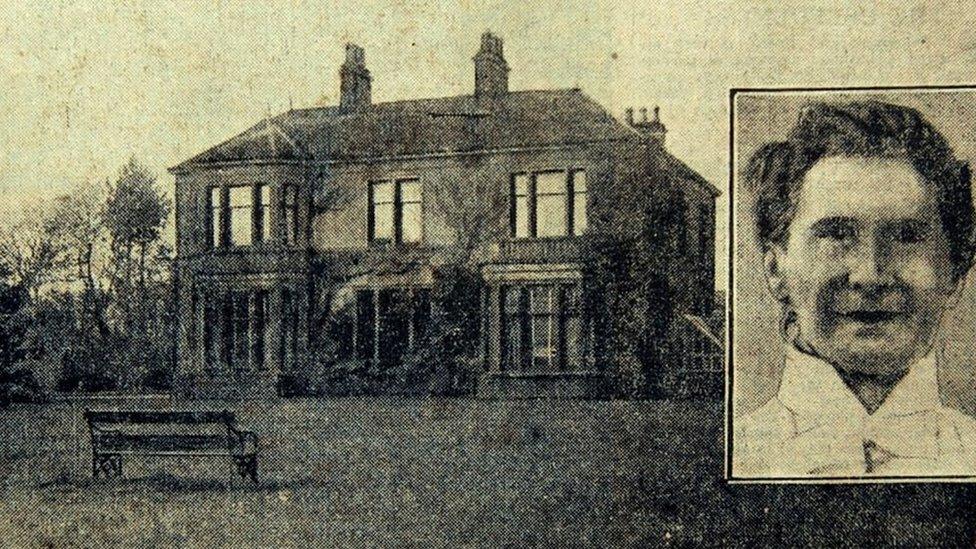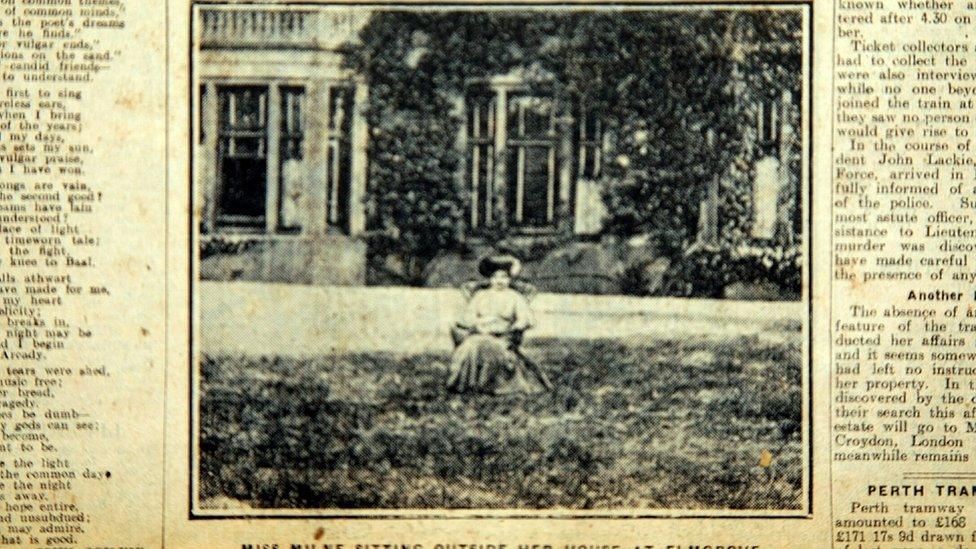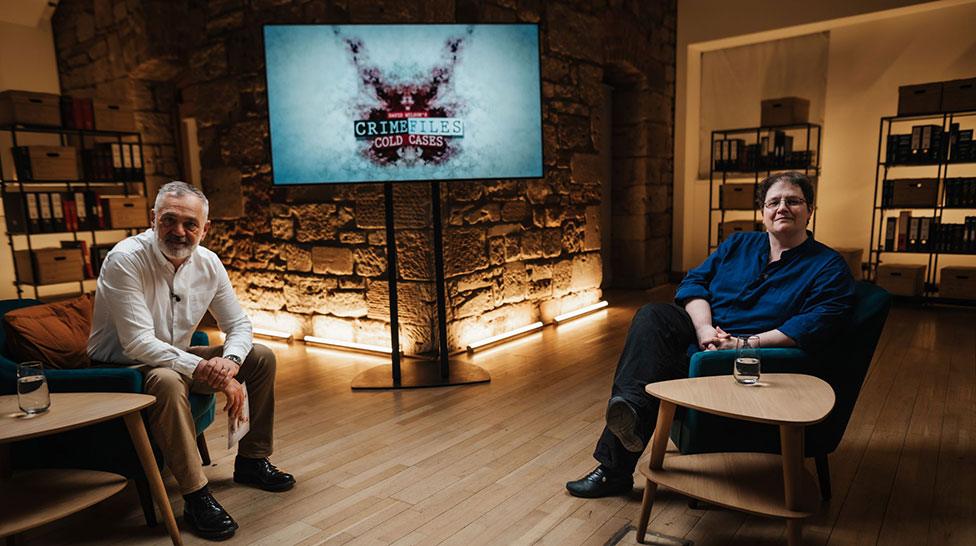Jean Milne: Forensic experts review 1912 murder of heiress
- Published

Jean Milne was murdered in her home in Broughty Ferry in 1912
The unsolved murder of a wealthy heiress in Broughty Ferry in 1912 has been re-examined by forensic experts.
Jean Milne was beaten with a poker and stabbed with a carving fork but no-one was ever convicted of the crime.
Her body was found at the bottom of the stairs of her own home, covered in a blanket and in a room covered in blood.
A new review of case files found fingerprints and the pattern of blood spatter was recorded - but it was not enough to identify a suspect.
The case was examined by experts at the University of Dundee's Leverhulme Research Centre for Forensic Science and their results shared on BBC Scotland's David Wilson's Crime Files: Cold Cases.
It is the second oldest cold case on Police Scotland's books.
Who was Jean Milne?
Miss Milne was a wealthy, unmarried woman who lived in Elmsgrove Mansion in Broughty Ferry, then a rich suburb of Dundee.
She had returned to the city in August 1912 after four months in London, telling her gardener about a "German gentleman" she met in the capital.

The Dundee Evening Telegraph carried an image of Miss Milne relaxing in her garden in a report published on 6 November 1912
On 19 September 1912, the gardener let a visitor into the house who he believed to be the German.
The following day Miss Milne left Dundee on a trip on steamer. A witness on the vessel said she was in the company of a "mysterious" man.
She was last seen alive on 14 October 1912, at an event at a church close to her Broughty Ferry home.
The following a day a local peddler - Andrew Hay - caught sight of a well-dressed man leaving Miss Milne's house. When he spotted Mr Hay, he quickly retreated back into the mansion.
How did she die?
Miss Milne's body was found on 3 November 1912, after her postman noticed her letters piling up behind the door at Elmsgrove Mansion and alerted the police.
David Wilson, a professor of criminology, said the body was discovered at the bottom of the stairs, suggesting "an element of staging".
He added: "She was fully clothed and covered with a cloth which I always associate with a perpetrator feeling ashamed of what he's done.
"The crime scene itself was a bloody mess because the killer had bludgeoned Jean to death with a poker and there was blood splatter all across the hallway."
Police ruled out burglary as a motive as the culprit did not touch her jewellery or the £17 she had in the house, and there was no sign of forced entry.
The police investigation
A police officer from Glasgow was brought in to lead the murder investigation - Detective Lieutenant John Trench.
Officers interviewed countless people and a suspect was arrested - but they were never charged with the crime.
Prof Niamh Nic Daeid, director of the Leverhulme Research Centre for Forensic Science, said officers made a careful record of the crime scene.
She said there was a "richness, an abundance" of material, including fingerprints, blood pattern, hair, which could have been used to solve the case using modern detection methods.

Prof David Wilson and Prof Niamh Nic Daeid discussed the murder investigation
In 1912, detectives thought that bloody finger marks found on a table top belonged to someone - perhaps the killer - who tried to clean their hands.
Prof Nic Daeid said today the marks would have been enhanced and compared with that of any suspect.
Modern experts would also be able to use the pattern of blood spatter to explain how the victim might have moved during the attack, she added.
She said: "The real challenge for the investigators in this case was while they found physical evidence, they didn't find physical evidence that linked them to an individual.
"So they found finger marks but they couldn't enhance them to a sufficient quality that would have been able to be examined.
"We didn't use DNA back in those days so there were no other opportunities to recover biological evidence that might have linked to an individual or excluded and individual from being a suspect in the case.
"Even though there was this richness of physical evidence at the scene, none of it could ultimately be used to try to link to a suspect. That needed to be done through eye witness testimony."
David Wilson's Crime Files: Cold Cases will be broadcast on BBC Scotland on Tuesday at 22:00.

More stories from Tayside and Central
